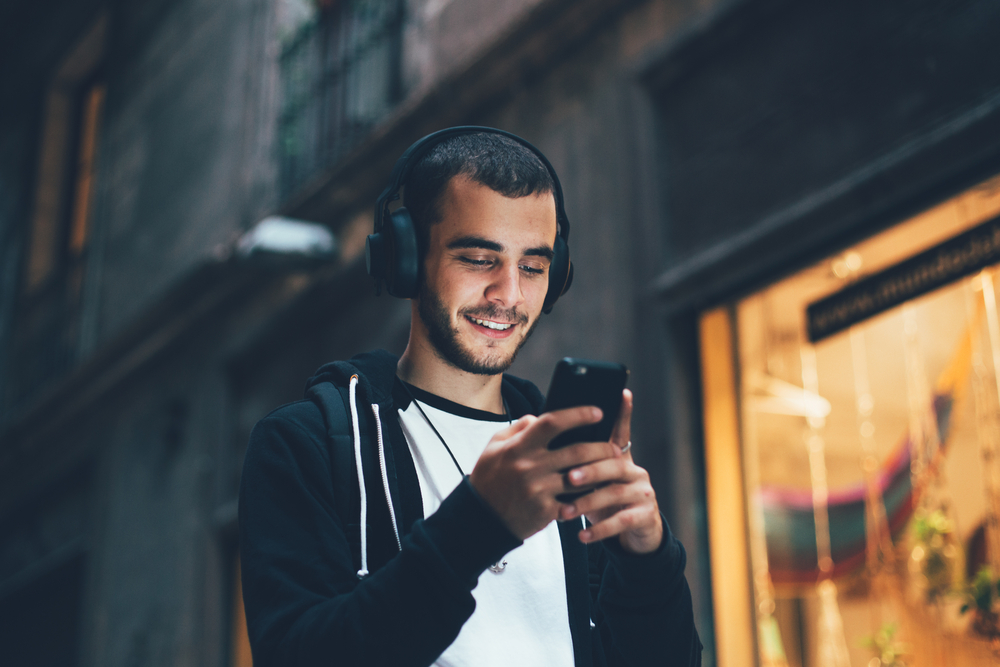
Meet James, a passionate music fan who perfectly integrates Spotify into his work routine, switches over to Pandora during his jogs, and curates playlists for every occasion imaginable, from cardio programs to cooking and even gaming. His headphones are his constant companions, converting his life into a fully soundtracked experience. However, while James gets solace and joy in the immersive world of music, the very thing he loves could be silently damaging his priceless sense of hearing.
There are safe ways to appreciate music and ways that are more hazardous to your hearing health. Sadly, many of us tend to gravitate towards the latter.
How does lengthy periods of music exposure result in hearing loss?
Over time, loud noises can cause degeneration of your hearing abilities. We’re used to regarding hearing loss as an issue associated with growing old, but an increasing amount of research reveals that it’s actually the accumulation of noise-related damage that is the concern here and not anything intrinsic in the aging process.
It also appears that younger ears are especially vulnerable to noise-related damage (they’re still developing, after all). And yet, young adults are more likely to be dismissive of the long-term dangers of high volume. So there’s an epidemic of younger people with hearing loss, thanks, in part, to widespread high-volume headphone usage.
Is it possible to enjoy music safely?
Unregulated full volume is obviously the” dangerous” way to listen to music. There is a way to listen to music more safely, which typically means reducing the volume. The suggested safe volume levels are normally as follows:
- For Adults: No more than 40 hours of listening on a device, and keep the volume lower than 80 dB.
- If you’re younger than 18, 40 hours is still ok, just be sure to keep the sound at a safe level, 75 decibels or less.
Breaking it down, you’re looking at approximately 5 hours and 40 minutes of listening every day. That seems like a lot, but it can go by rather quickly. In spite of this, the majority of people have a well-developed awareness of time management, a skill that is usually perfected during early childhood.
The harder part is monitoring your volume. On the majority of smart devices, computers, and televisions, volume is not measured in decibels. Its value is determined using a rather subjective or relative scale. The range could be as wide as 1 to 100, or it could be as small as 1 to 16. You may not have any idea what the max volume on your device is, or how close to the max you are.
How to effectively monitor your music volume
To address this issue, numerous free noise tracking apps are available for both iPhone and Android devices. These apps provide real-time information into ambient noise levels, equipping users to adjust their music volume appropriately.
Because of this, many audiologists recommend utilizing one of the numerous noise level monitoring applications available at no cost. These apps– extensively available for both iPhone and Android devices– will give you real-time readouts on the noises surrounding you. That way, you can keep track of the dB level of your music in real time and make adjustments.
Comparing relative volumes: from garbage disposals to dishwasher
For instance, a noise level of 80 decibels is similar to the sound produced by a common garbage disposal or dishwasher – you can hear them, but they won’t blow your ears out. Identifying this benchmark is essential, as it represents the limit beyond which hearing damage becomes a substantial danger.
It’s crucial to exercise heightened vigilance when noise levels surpass this critical point. Think about limiting exposure to excessively loud music by indulging in select tracks at maximum volume rather than indulging in entire albums.
Extended exposure to loud sounds can lead to hearing problems, including ringing in the ears, or tinnitus, and potentially irreversible damage to one’s hearing. By being mindful of when our ears are at risk, we enable ourselves to make informed choices in order to promote safer listening habits.
Schedule a hearing test
For better prioritization of your hearing health, it is advisable to contact a hearing professional to book a comprehensive hearing examination. Taking proactive steps like regular screenings can identify possible problems at an early stage, enabling quick actions and tailored advice to safeguard your valuable hearing.